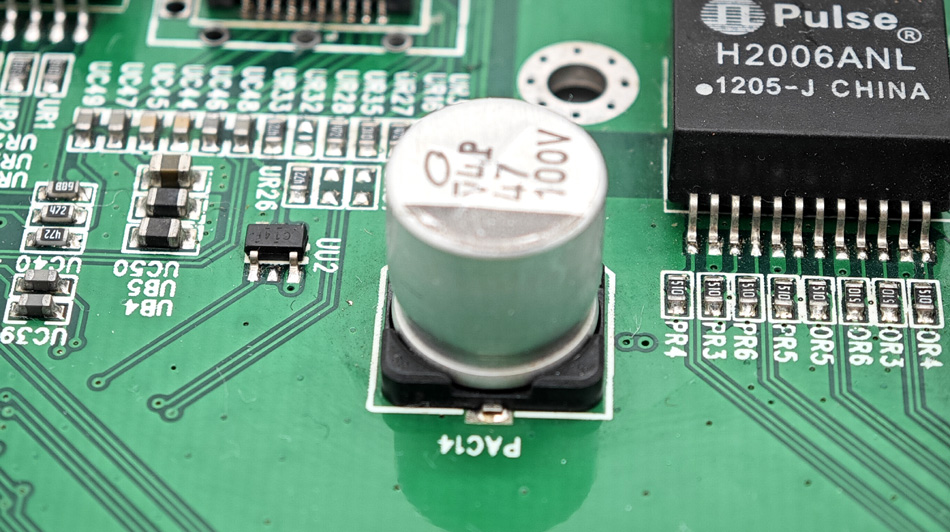- English
- Español
- Português
- русский
- Français
- 日本語
- Deutsch
- tiếng Việt
- Italiano
- Nederlands
- ภาษาไทย
- Polski
- 한국어
- Svenska
- magyar
- Malay
- বাংলা ভাষার
- Dansk
- Suomi
- हिन्दी
- Pilipino
- Türkçe
- Gaeilge
- العربية
- Indonesia
- Norsk
- تمل
- český
- ελληνικά
- український
- Javanese
- فارسی
- தமிழ்
- తెలుగు
- नेपाली
- Burmese
- български
- ລາວ
- Latine
- Қазақша
- Euskal
- Azərbaycan
- Slovenský jazyk
- Македонски
- Lietuvos
- Eesti Keel
- Română
- Slovenski
- मराठी
- Srpski језик
How does PCBA factory operations management impact project delivery?
In the electronics industry, PCBA (Printed Circuit Board Assembly) processing is a critical step in the product manufacturing process. PCBA factory operations management directly impacts project delivery time, quality, and cost. Effective operations management not only improves production efficiency but also ensures timely product delivery, thereby enhancing customer satisfaction and market competitiveness. This article will explore how PCBA factory operations management impacts project delivery.

1. Production Planning and Scheduling
Effective Production Planning
In PCBA processing, production planning is the first step to ensuring smooth project delivery. A sound production plan helps factories clarify the timing and resource allocation of each production step, ensuring that each stage is completed on time. By accurately forecasting market demand, factories can develop effective production plans and reduce bottlenecks in the production process.
Flexible Scheduling Capabilities
Flexible scheduling capabilities are particularly important for PCBA factories when facing unexpected situations. When order volume suddenly increases or equipment failures occur, the operations management team can quickly adjust production line resource allocation and manpower arrangements to ensure uninterrupted production. This flexibility helps factories shorten project delivery cycles while ensuring quality.
2. Resource Management
Rational Allocation of Equipment and Personnel
Effective resource management is fundamental to a PCBA factory's successful project delivery. By properly allocating equipment and personnel, a factory can maximize production capacity and reduce operating costs. For example, a well-planned equipment layout can reduce material transportation time and improve production efficiency. Furthermore, personnel training and management are crucial; skilled employees can more quickly adapt to production needs and enhance productivity.
Material Management
Timely procurement and management of materials directly impact the smooth progress of PCBA processing. By establishing a comprehensive material management system, a factory can monitor inventory in real time, procure required raw materials promptly, and avoid production delays caused by material shortages. Furthermore, effective material storage and management can reduce material waste and improve overall production efficiency.
3. Quality Control
Strict Quality Management System
Quality is a crucial factor in PCBA processing that cannot be ignored. Establishing a strict quality management system ensures that every production step meets standards and reduces defect rates. By conducting real-time quality inspections throughout the production process, the factory can promptly identify and correct problems, ensuring the quality of the final product.
Feedback Mechanism for Continuous Improvement
By establishing a customer feedback mechanism, PCBA factories can obtain real-world data on product quality. This feedback not only helps factories identify potential issues but also provides a basis for future production improvements. Continuous quality improvement strengthens customer trust, enhances brand image, and fosters future collaborations.
4. Information Management
Data-Driven Decision-Making
Information management is becoming increasingly important in the operational management of PCBA factories. Through information systems, factories can monitor and analyze production processes in real time. Real-time data acquisition and analysis help management make faster and more accurate decisions, ensuring the execution of production plans.
Transparent Communication
Information management can also improve communication efficiency within the factory and with customers. By establishing an information sharing platform, information such as project progress, production status, and quality data can be promptly communicated to relevant personnel and customers. This transparent communication enhances trust and reduces project delays caused by information asymmetry.
5. Project Risk Management
Risk Identification and Assessment
In PCBA project management, operational management must focus on identifying and assessing potential risks. By analyzing potential risks at every stage of a project, factories can develop appropriate response strategies to mitigate project delivery risks. For example, identifying factors that could lead to production delays in advance and developing contingency plans can ensure on-time project delivery.
Emergency Response Mechanism
Establishing an effective emergency response mechanism is crucial for responding to emergencies. When project progress is impacted, the operations management team can respond quickly and adjust production plans and resource allocation promptly to ensure project delivery is not significantly impacted.
Conclusion
PCBA factory operations management plays a vital role in project delivery. Through effective production planning, resource management, quality control, information management, and risk management, factories can improve production efficiency, reduce costs, and ensure on-time product delivery. As market competition intensifies, continuously optimizing operations management will be key for PCBA factories to maintain their competitiveness and meet customer needs.
Send Inquiry
-
Delivery Service






-
Payment Options









